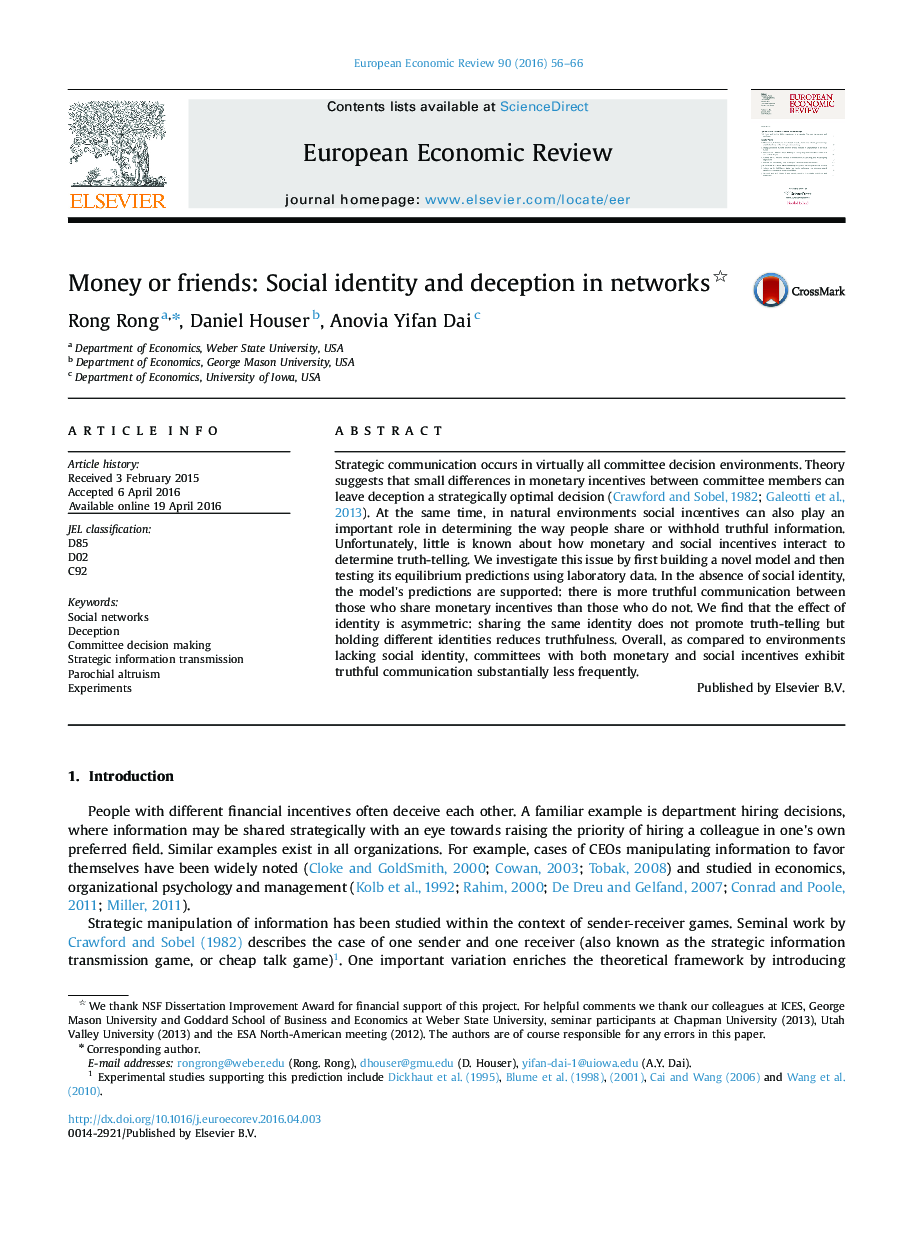| Article ID | Journal | Published Year | Pages | File Type |
|---|---|---|---|---|
| 5066402 | European Economic Review | 2016 | 11 Pages |
Strategic communication occurs in virtually all committee decision environments. Theory suggests that small differences in monetary incentives between committee members can leave deception a strategically optimal decision (Crawford and Sobel, 1982; Galeotti et al., 2013). At the same time, in natural environments social incentives can also play an important role in determining the way people share or withhold truthful information. Unfortunately, little is known about how monetary and social incentives interact to determine truth-telling. We investigate this issue by first building a novel model and then testing its equilibrium predictions using laboratory data. In the absence of social identity, the model׳s predictions are supported: there is more truthful communication between those who share monetary incentives than those who do not. We find that the effect of identity is asymmetric: sharing the same identity does not promote truth-telling but holding different identities reduces truthfulness. Overall, as compared to environments lacking social identity, committees with both monetary and social incentives exhibit truthful communication substantially less frequently.
